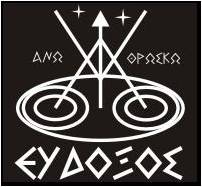Education in Greece
 |
|
| Minister for Education and Religious Affairs, Sport and Culture | |
|---|---|
| Minister | Aristeidis Baltas |
| National education budget (2010) | |
| Budget | 12,08 billion € (public)
4% of GDP1 |
| General details | |
| Primary languages | Greek |
| Literacy (2014) | |
| Total | 98% |
| Male | 99% |
| Female | 97% |
| Enrollment | |
| Total | 1,426,175 |
| Primary | 786,025 2 |
| Secondary | 360,248 3 |
| Post secondary | 276,902 4 |
| 1Gianouridis & Bagley, p. 62 2000-2001 schoolyear (Επαιδευτικό Ελληνικό πίνακας 6.2, σ. 24) 32000-2001; loc. cit. 41999-200; ibid., 53 | |
The building of the National Library of Greece
The Greek educational system is mainly divided into three levels, primary, secondary and tertiary, with an additional post-secondary level providing vocational training. Primary education is divided into kindergarten lasting one or two years, and primary school spanning six years (ages 6 to 12). Secondary education comprises two stages: Gymnasio (variously translated as Middle or Junior High School), a compulsory three-year school, after which students can attend Lykeion (an academically oriented high school) or Vocational training. Higher Tertiary education is provided by Universities and Polytechnics, Technological Educational Institutes (T.E.I., 1983 ~ present) and Academies which primarily cater for the military and the clergy. Undergraduate courses typically last 4 years (5 in polytechnics and some technical/art schools, and 6 in medical schools), postgraduate (MSc level) courses last from 1 to 2 years and doctorates (PhD level) from 3 to 6 years.
All levels are overseen by the Ministry of Education and Religious Affairs. The Ministry exercises centralised control over state schools, by prescribing the curriculum, appointing staff and controlling funding. Private schools also fall under the mandate of the Ministry, which exercises supervisory control over them. At a regional level, the supervisory role of the Ministry is exercised through Regional Directorates of Primary and Secondary Education, and Directorates of Primary and Secondary Education operate in every Prefecture. Tertiary institutions are nominally autonomous, but the Ministry is responsible for their funding, and the distribution of students to undergraduate courses. Currently the Greek government only recognises the degree programmes offered by the state-run universities although there are several private universities and colleges offering degree programmes that are validated and overseen by American, British and other European universities. The Greek government is pressured to recognise these overseas programmes.
All levels of education are catered for by both private and public schools. State-run schools and universities do not charge tuition fees and textbooks are provided free to all students, although, from 2011 onwards, there has been noticed a shortage in new textbooks, forcing students to either buy stock books from bookshops, or participate in parent-teacher association-run book trades. There are also a number of private tutors schools, colleges and universities operating alongside the state education and providing supplementary tuition. These parallel schools (Greek: φροντιστήριο, frontistirio (singular)) provide foreign language tuition, supplementary lessons for weak students as well as exam preparation courses for the competitive Panhellenic national examinations. Most of the students typically attend such classes (and examinations) at the tutors schools in the afternoon and evening in addition to their normal schooling.
The Greek education system has been criticised over the years by Greek people for various issues, like difficulty levels of the exams during Panhellenic Examinations, number of teaching hours in schools etc.

